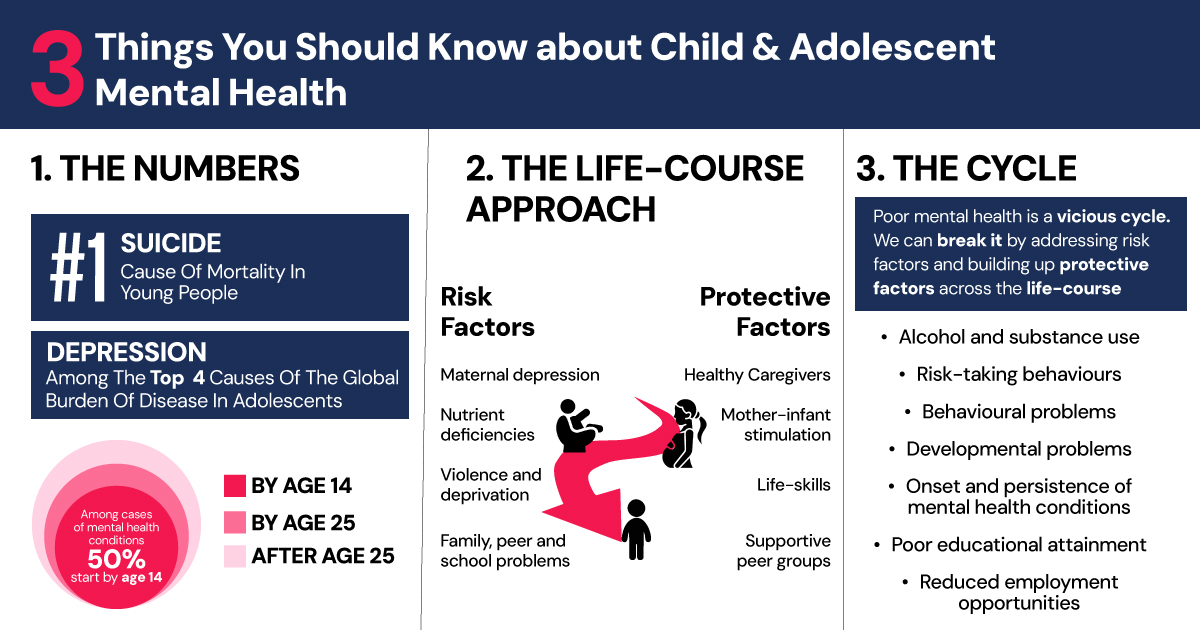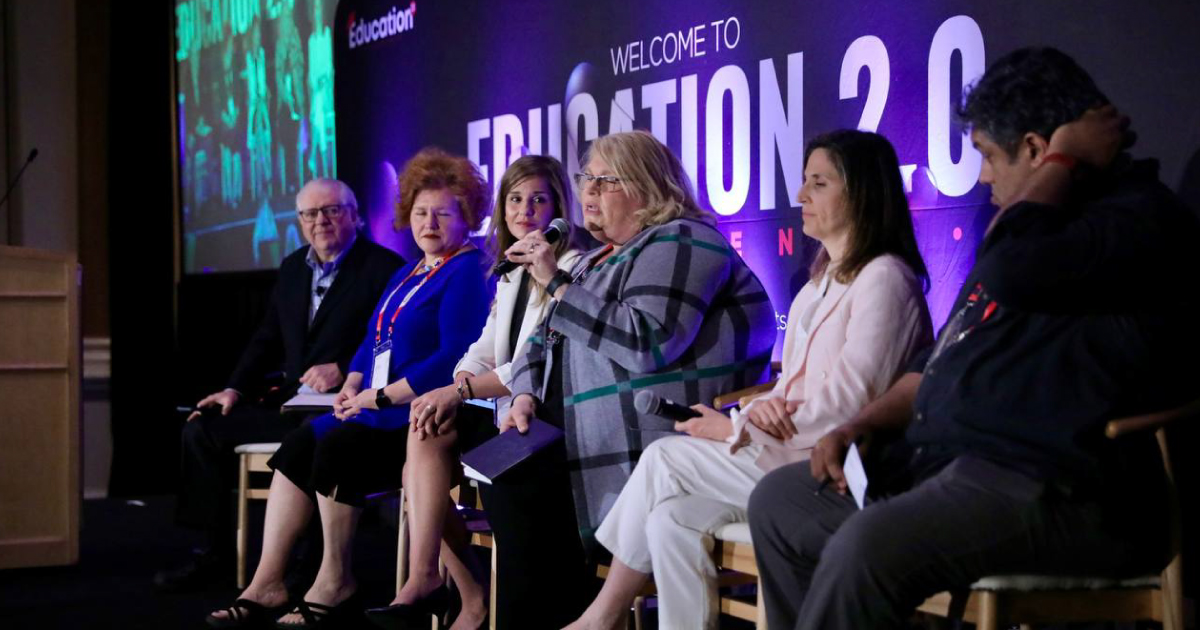Mental health is the cornerstone of every child’s ability to learn, grow, and thrive. In today’s fast-moving world, students face unprecedented challenges: academic pressures, social media stress, and the emotional ups and downs of growing up. These factors can take a serious toll on their mental and emotional well-being, often in ways that go unnoticed until they become crises.
Schools are uniquely positioned to be a safe haven—more than just classrooms, they’re communities where kids spend a large part of their day. When schools prioritize mental health awareness, they create environments where students feel seen, supported, and empowered to overcome challenges.
As we prepare for the upcoming editions of our education leadership summit, mental health awareness remains at the heart of our mission. This blog from the Education 2.0 Conference delves into why mental health matters in schools, the vital role educators play, and how a holistic approach can transform the educational experience for students everywhere.
Why Mental Health Matters In Schools
Children and adolescents face a variety of challenges that impact their mental health, from academic stress and social pressures to family issues and even broader societal concerns. According to recent data from the World Health Organization, one in seven 10–19-year-olds experiences a mental disorder. Yet, stigma and lack of resources often prevent early intervention.
The ripple effects of untreated mental health issues are profound: diminished academic performance, increased absenteeism, behavioral problems, and a higher risk of substance abuse or self-harm. Moreover, as reflected by experts at our education leadership summit, mental health challenges can influence social interactions, causing isolation or conflict with peers and family members.

Schools are more than learning environments; they are communities where students spend a significant portion of their day. By integrating mental health education and support within school systems, we can identify challenges early and offer timely assistance. This not only helps students cope with immediate issues but also builds resilience that serves them well into adulthood.
The Role Of Educators And School Staff
Teachers, counselors, and school administrators are frontline guardians of student well-being. However, they need proper training and resources to recognize warning signs and respond appropriately. At our education innovation summit, we emphasize the importance of professional development focused on mental health literacy.
For instance, educators trained in trauma-informed approaches can better understand and manage the behaviors of students affected by adverse experiences. This awareness fosters a more empathetic and supportive classroom environment, reducing the risk of students falling through the cracks.
We encourage schools to adopt a whole-school approach where mental health is embedded in the culture and curriculum, not just an add-on. This means fostering open dialogue, creating safe spaces for students, and ensuring access to qualified mental health professionals on campus. Proactively building these systems encourages students to seek help before problems escalate.
Creating A Supportive Environment
A positive school climate that promotes inclusivity, respect, and understanding is vital for mental health. Bullying, discrimination, and social isolation can exacerbate mental health problems, so schools must adopt clear policies and effective prevention programs. Anti-bullying campaigns, peer support groups, and restorative justice practices are examples of successful strategies that contribute to safer school environments.
At our education leadership summit, we emphasize the critical role of school leaders in fostering these supportive environments and driving meaningful change.
Furthermore, engaging families and communities in mental health initiatives amplifies the support network for students. Parents and caregivers play a crucial role in reinforcing the importance of mental health and collaborating with schools to address challenges. When students feel supported both at school and at home, their ability to thrive academically and socially improves significantly.
How Education 2.0 Conference Addresses Mental Health Awareness
Each year, our education innovation summit brings together educators, policymakers, mental health experts, and innovators to explore strategies for improving student outcomes. Mental health awareness has been a recurring and growing theme in our sessions, panels, and workshops.
In the upcoming editions of the Education 2.0 Conference, we will dedicate special sessions to the mental health crisis in schools. Topics will include early identification of mental health challenges, integrating social-emotional learning (SEL) into curricula, and more. Our goal is to provide attendees with evidence-based approaches and practical frameworks to implement in their institutions. We believe that sharing these successes inspires wider adoption and drives systemic change.

The Challenge Ahead
Despite growing awareness, many schools still face barriers such as limited funding, a shortage of trained staff, and cultural stigma surrounding mental health. These challenges require coordinated efforts at all levels—from school districts to national education policies.
Our education leadership summit is committed to promoting collaboration and advocacy to ensure mental health becomes an integral part of education systems globally. We encourage participants to engage actively in discussions, share experiences, and advocate for policies that prioritize mental health resources and training. By working together, we can influence decision-makers to allocate necessary support and funding.
Moving Forward
As we approach the Education 2.0 Conference in 2025 & 2026, we reaffirm our commitment to mental health awareness in schools. We urge educators, administrators, and policymakers to recognize mental health as foundational to student success and to take tangible steps toward creating supportive, nurturing learning environments.
The stakes are too high to ignore. Every student deserves a chance to learn in an environment that respects their emotional needs as much as their academic ones. Together, we can transform schools into places where students not only excel academically but also flourish emotionally and socially.
The future of education depends on it. We invite all stakeholders to join us at our education innovation summit, where we will continue this vital conversation and collaborate on meaningful solutions that make a real difference in the lives of students everywhere.
FAQs
1. Why is mental health awareness important in schools?
Mental health awareness helps identify and address emotional and psychological challenges early, creating a supportive environment that fosters both academic success and personal growth. It reduces stigma and encourages students to seek help when needed.
2. How does the Education 2.0 Conference support mental health initiatives?
The conference features dedicated sessions, expert panels, and keynotes on mental health topics, providing educators and policymakers with actionable insights, best practices, and innovative solutions to improve student well-being in schools worldwide.
3. What can educators do to promote mental health awareness at their schools?
Educators can advocate for professional development in mental health literacy, implement social-emotional learning programs, foster open dialogue, and collaborate with mental health professionals to build a positive, inclusive school climate.
4. Who should attend the Education 2.0 Conference to benefit from discussions on mental health?
The conference welcomes educators, school administrators, counselors, mental health professionals, policymakers, and anyone involved in education who is committed to improving mental health support and student outcomes in schools.
5. What are some common challenges schools face when addressing mental health?
Challenges include limited funding, lack of trained staff, cultural stigma, and insufficient resources. Overcoming these barriers requires coordinated efforts from school leaders, communities, and policymakers.














